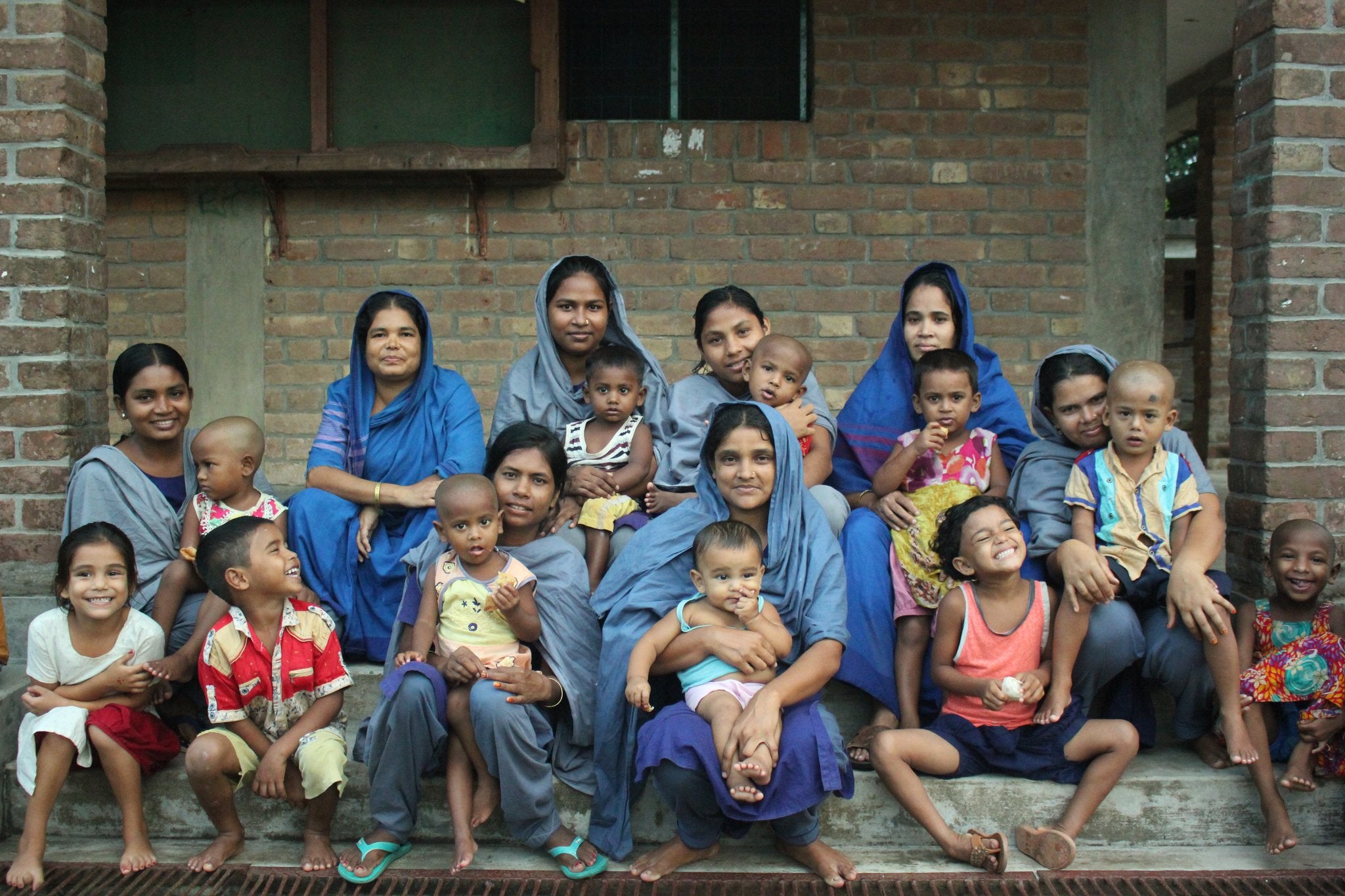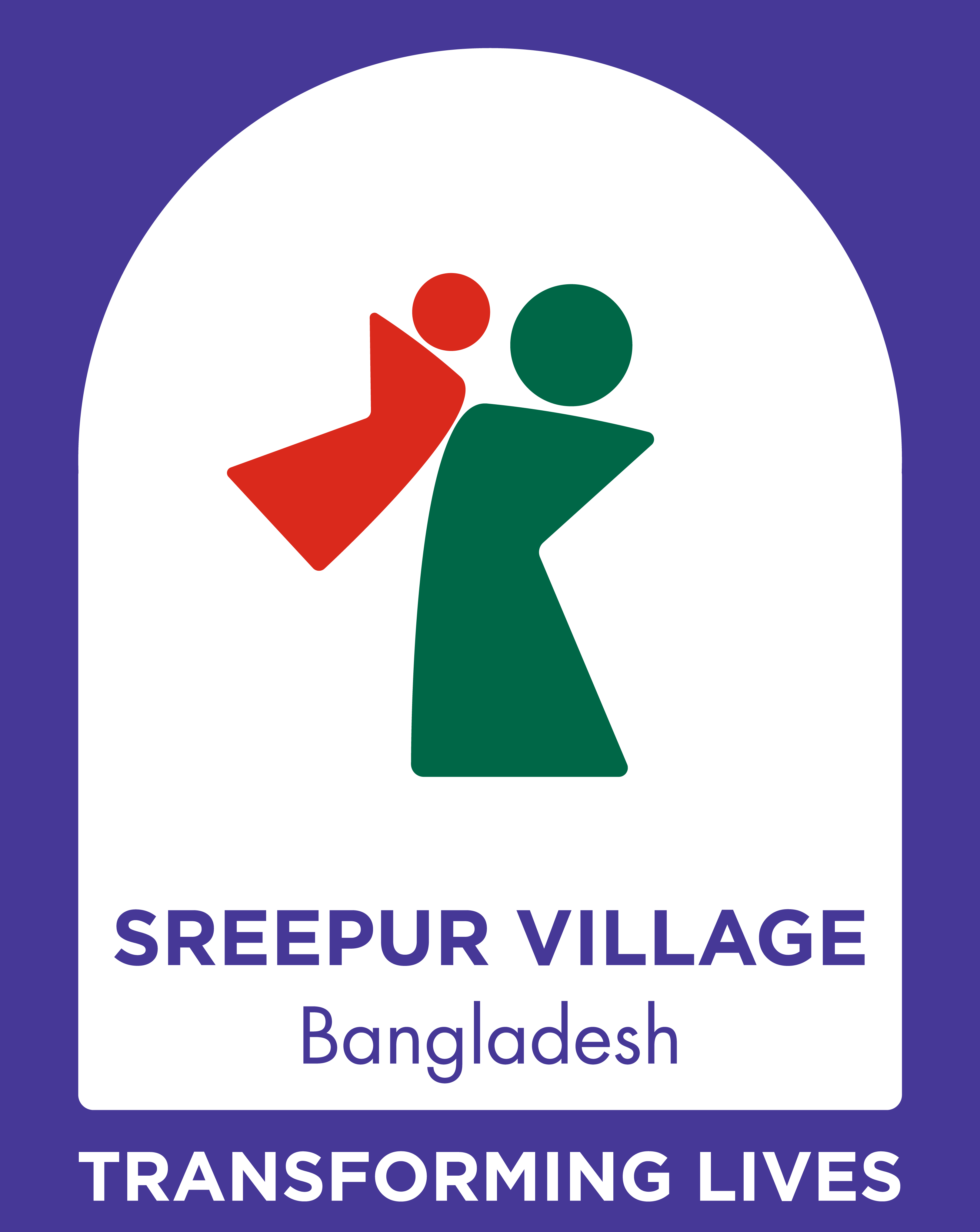

What we do
Transforming Lives We are the only project in Bangladesh offering a safe haven and livelihood training to single mothers and their children, transforming their lives with independence, confidence and dignity. Sreepur Village has becoming increasingly well known throughout the country for empowering mothers and their children with hope for a brighter future.
Arriving at Sreepur Village:

When a mother and her children first arrive, we check that their circumstances meet our admission criteria, and if necessary our social workers visit their village or relatives to ensure that they are truly in need. Once the family has been accepted, they spend a week or so in our clinic so that any illnesses or contagious skin problems such as scabies are diagnosed and cleared.
Immediately on admission, the mother meets with our occupational therapists and sets up an agreed rehabilitation plan, centred around where she wants to live when she leaves Sreepur Village and what she would like to do to earn a living, such as agriculture, tailoring, etc. This plan sets out the sections where the mother will work during her time with us, and the literacy, numeracy and hygiene training that she will receive.
Support

The Sreepur Village is often the first place where each woman wakes up knowing that she will be safe, will receive nutritious meals, and will have the company and friendship of other women in similar circumstances.
Every month, the mothers hold a meeting where they discuss life at the Village, any problems and any suggestions for improvements. They also have singing and dancing sessions in smaller groups each week which have turned out to be extremely popular, and a great way for these women to build their confidence. Self-esteem is an important part of learning to manage independence and we provide group and individual counselling to lessen the impact of the abuse and loneliness that they have suffered in the past.
While they live with us, we pay them a small allowance each month plus a compulsory savings scheme where we put money in a bank account so that they have funds when they leave. Each year, the women vote to increase their savings rather than their monthly allowance – a welcome sign that they have started to appreciate that they need to plan for the future.
Most women have few parental skills so they attend training on child rights, managing behaviour, nutrition and health. After the first year, each woman will spend time working as a khala (auntie) responsible for the care of the children.
Length of stay
Each family lives with us for up to three years. For three months prior to discharge, each mother lives with her children in our Halfway House which sits on the perimeter of the village with a gate out into the local community. It has a tube well, water pump and village kitchen so that the families can learn to live together as a small unit before they leave us. We still have more work to do on our post-discharge monitoring, but we stay in touch with each family for a few months to make sure that they settle into community life and that they have sufficient income to live at a reasonable level.
Helping children

Most of the children have mothers at the Sreepur Village, but we do still take abandoned and trafficked children if there is not a more suitable place for them with other NGOs.
The children have a wonderful life at the village. They have plenty of friends and space to play – both in the well equipped playground and in the sports field (despite the presence of cows and goats!) and on the basketball court.
Our school covers pre-school, kindergarten and primary classes, and older children attend the local village schools for secondary education. Academically bright children are supported through further education and university. However, most of our children will train in tailoring, auto-mechanics, and production work, and we have good contacts with ethical companies for apprenticeships and job placements.
Disabled young adults
We also have a small number of physically disabled young adults, and they live in specially adapted quarters in the Halfway House which gives them a measure of independence whilst most acquire the skills to live in the outside world (usually with some support and supervision).
